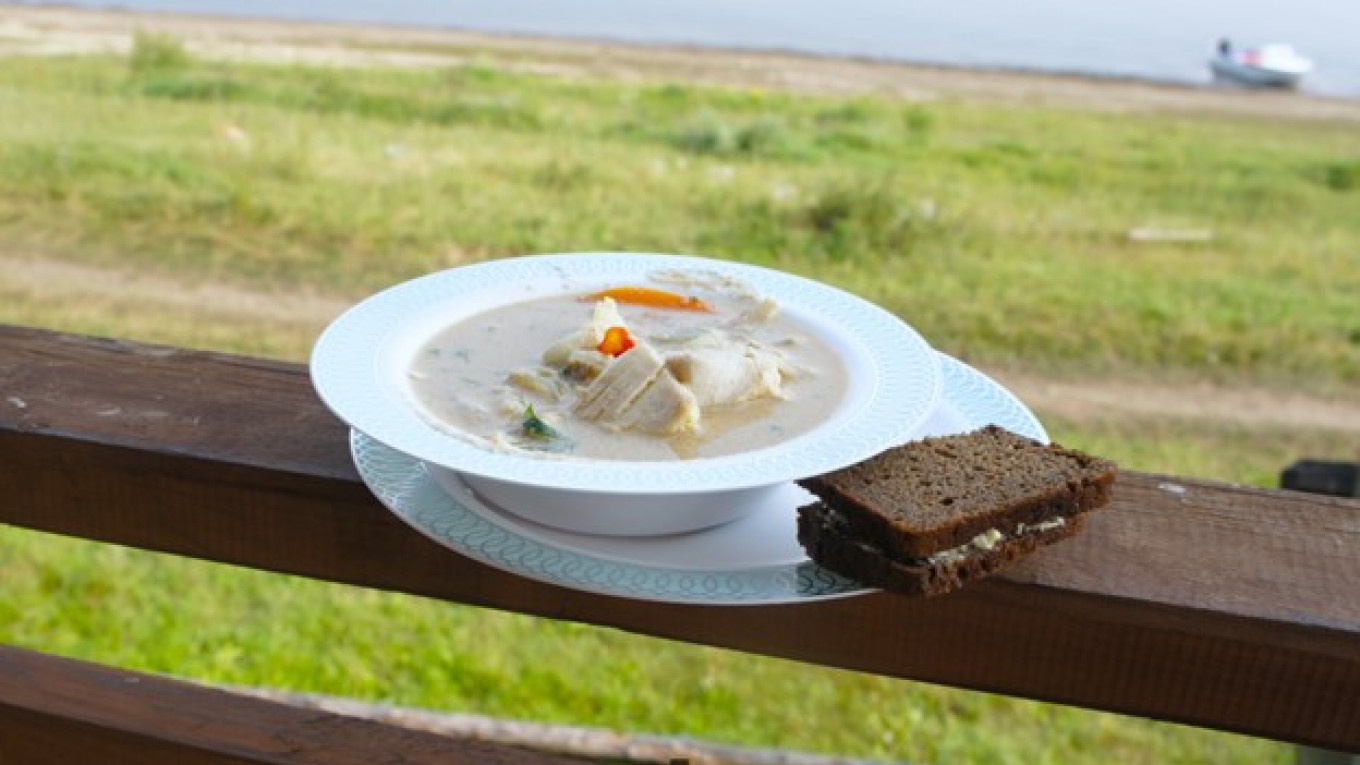Ukha is an enigma in Russian cuisine. It seems simple: fish, vegetables, and spices. But what about all the places where it’s not made with these ingredients? While some people argue about that, others get into discussions — and sometimes heated arguments that turn into fights — about ukha not being fish soup at all. So what’s the truth?
On the one hand, we suffer from excessive national pride. As we all know, "a poet in Russia is more than a poet." So, naturally, we don't have just fish soup, we have ukha. It’s not like French bouillabaisse.
On the other hand, when you look deeper, it isn’t clear what exactly ukha is. There are no canonical recipes for it and never have been. In fact, until the 18th century ukha wasn’t “fish soup” at all. We find “chicken ukha” or “duck ukha” in 17th-century texts.
Even the word "ukha" is not specifically Russian. In every Slavic language from Polish to Bulgarian there are words that sound similar and mean a soup or bouillon. For this reason, linguists have long suspected that the word comes from the ancient Indian yū́́ṣ. Russian "yushka" (broth or stock) is a remnant of ancient times, when fish, meat and poultry all went equally well into the stock pot.
Even the old names of ukha do not make you feel patriotic. As Russian-Ukrainian historian Nikolai Kostomarov wrote, in the 16th century "fish soup with cloves was called black ukha, with pepper it was white ukha, and without spices — naked ukha." So, it turns out that without foreign spices our fish soup is "naked"? That isn't very flattering.
That said, today once you try ukha, you won’t confuse it with any other soup. The paradox is that you can try dozens of kinds of ukha — each Russian province has always had its own recipe. In the Middle Volga it’s made with sterlet (small sturgeon) and onions, in Arkhangelsk — with cod (even cod liver) and milk, in Baikal — with omul and rice. Azov ukha is really something special. It’s made with tomatoes and apples — sometimes pickled (soused) apples.
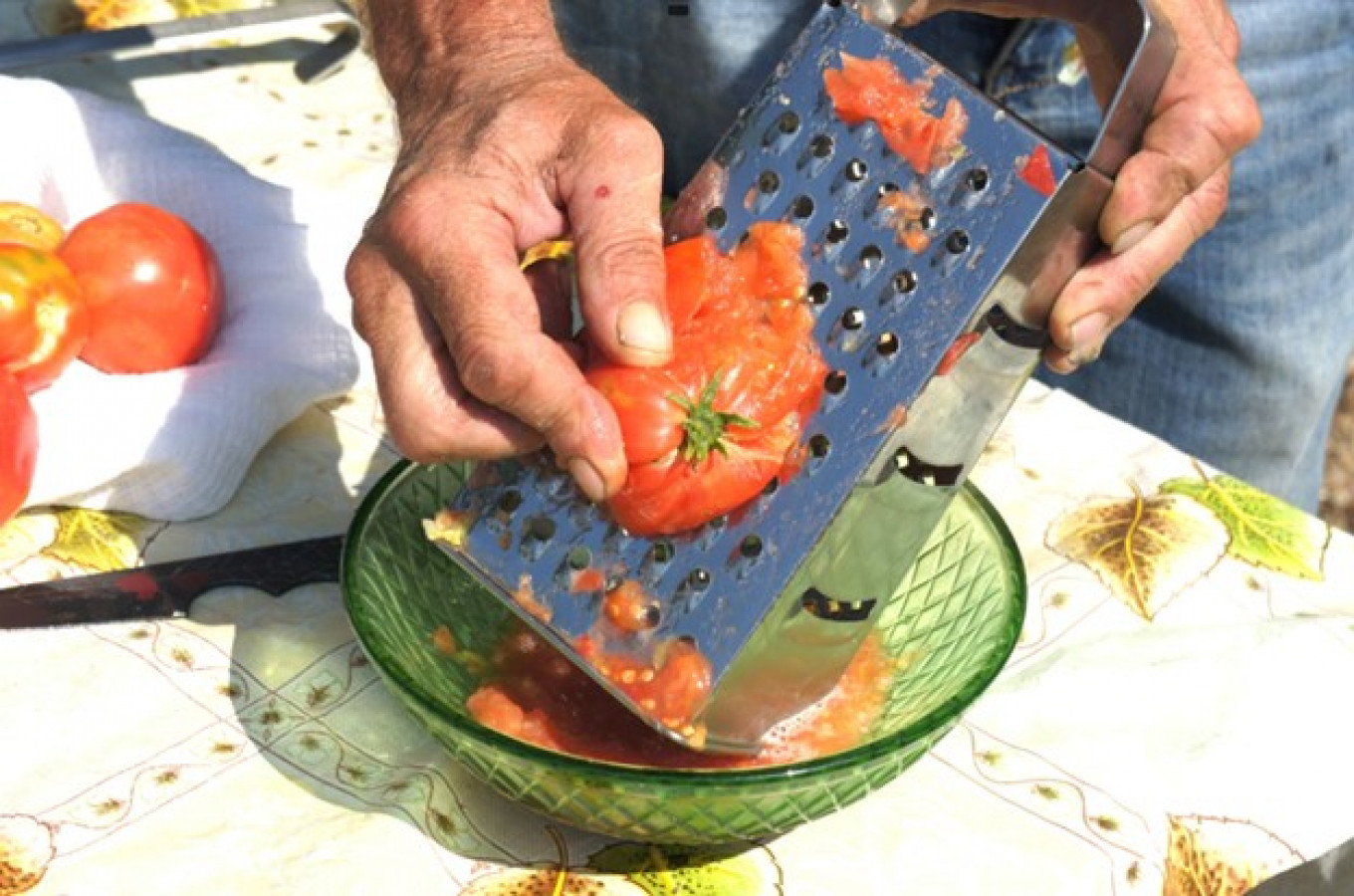
When you make this kind of ukha, first you put in silver carp. Then bream, European carp, and carp. Some catfish. And pike-perch, which, according to the locals, adds sweetness. But God forbid you say a word about adding pike-perch when you’re on the Volga. As one reader recently wrote to us, “they’ll beat you up for that.”
What each recipe has in common is a rich broth made from several types of fish. Its historical apotheosis was "Shuvalov's ukha.” Ivan Shuvalov was a favorite of Empress Elizaveta Petrovna and a true gourmet. He loved ukha made with an incredible amount of fish, which was cooked for three days. Once when this soup was served at a palace feast, he stood up, took a gold Imperial coin out of his pocket and carefully lowered it into a bowl of soup. The heavy coin did not sink, so "strong" was Shuvalov's ukha.
Ukha is the essence of antiquity. In the 16th century there was a soup called yurma. It was made with fish and chicken. The two broths were mixed together, and the fish acquired a distinct chicken flavor. In central Russia no one has heard about this soup for centuries. But in the south, in the Rostov region, it has survived. “Rooster ukha” is a soup still made in Cossack cuisine.
So how did that recipe survive? Actually, it’s quite simple, In the 15th and 16th centuries people fled to the south, to the Don River, to escape oppression from the tsar in Moscow. There on the Don they became free Cossacks. They have preserved their cuisine — a wonderful monument to our gastronomic past.
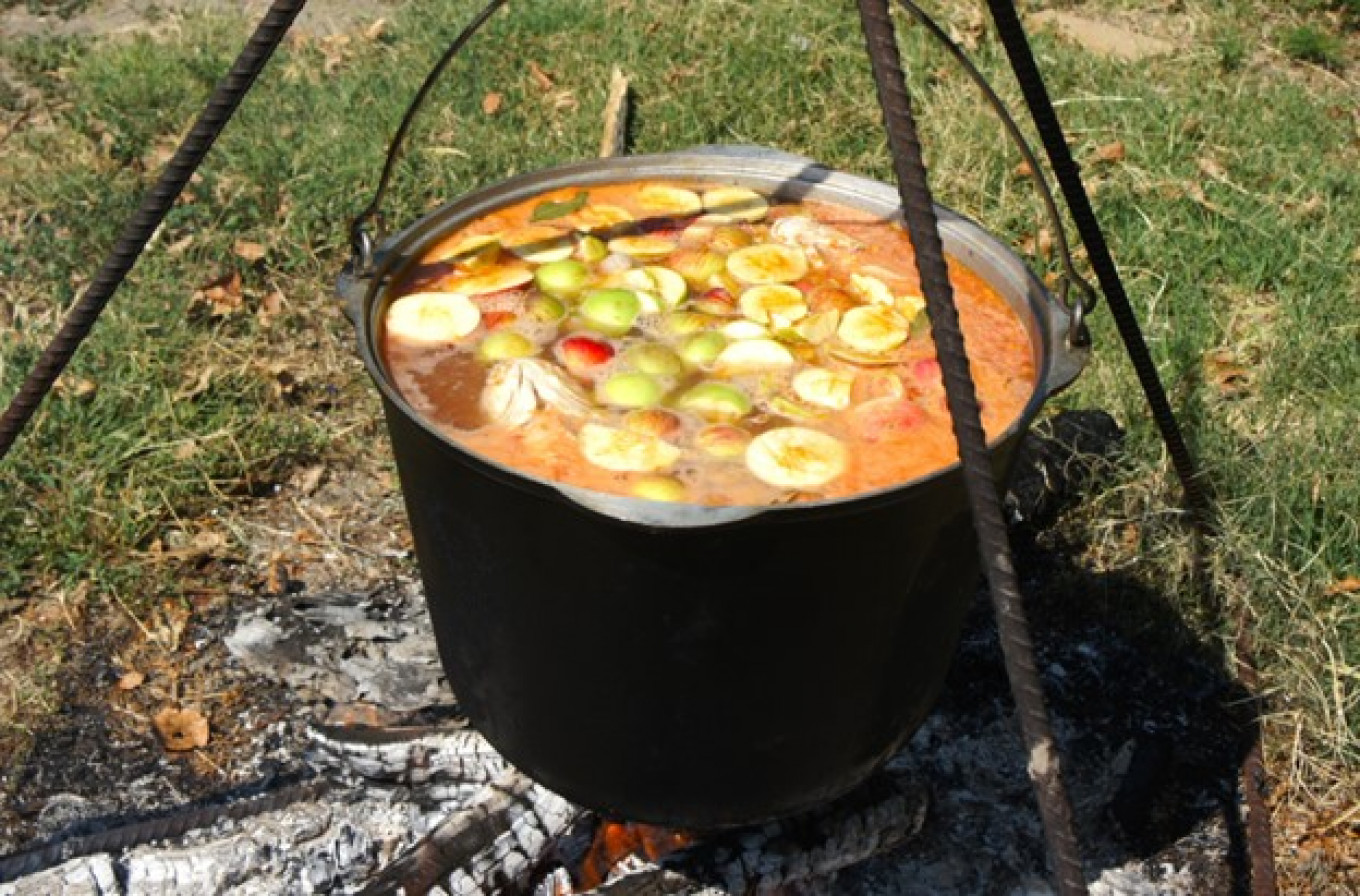
However, even today ukha can surprise us. Fish soup with milk? Lots of Russians find that strange. But for centuries in our northern cuisine — in Arkhangelsk and in the regions on the sea — ukha is made with milk and a northern fish called navaga, a small cod similar to saffron cod (found in the Pacific Ocean). This ukha is similar to a Finnish soup called lohikeitto made with salmon and cream — or even New England seafood chowder made in the U.S.
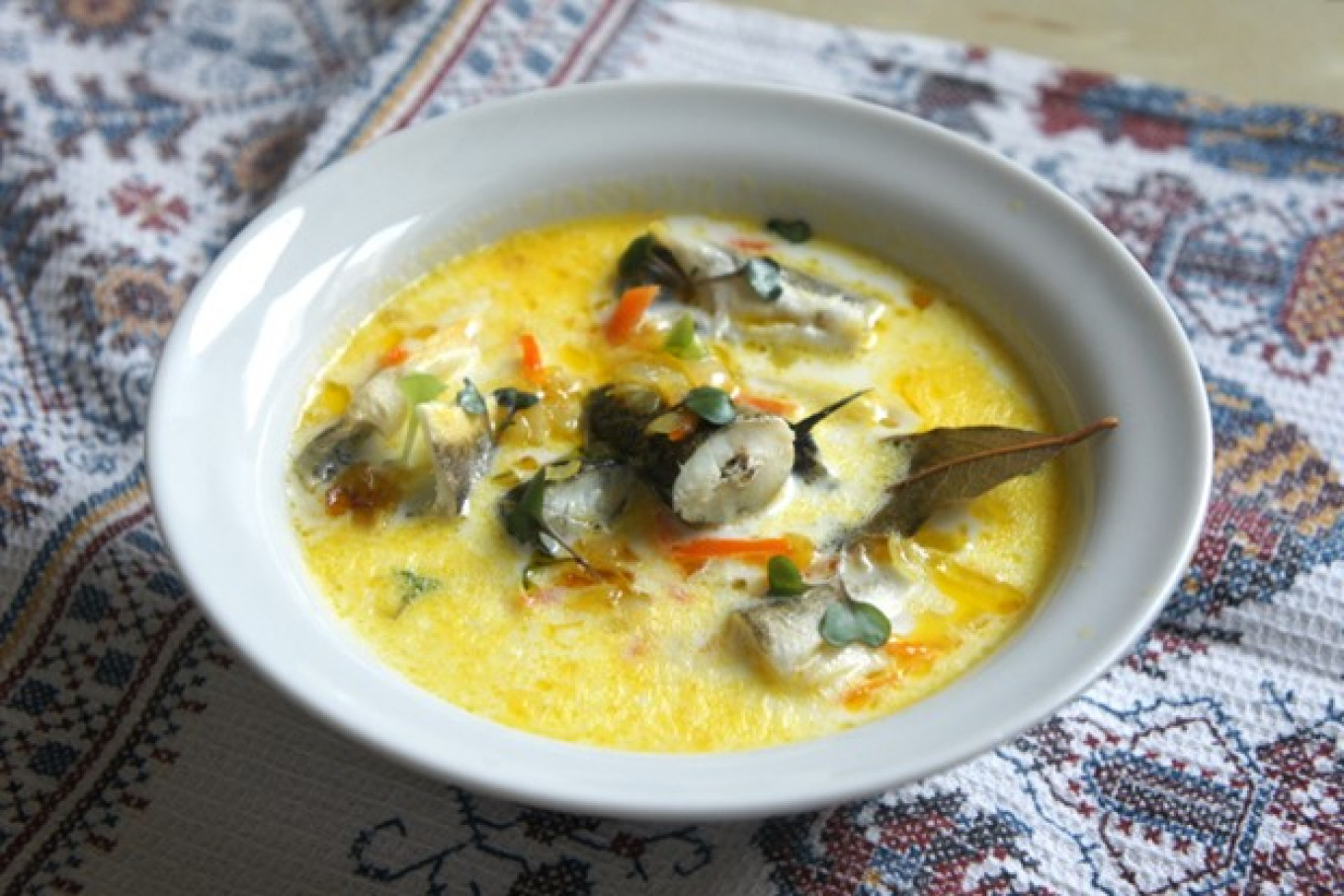
The Soviet period, of course, changed a lot on our table. After a cascade of hydroelectric power stations were built on the Volga in Central Russia, sturgeon disappeared from the rivers.
Sterlet — a small breed of sturgeon — soup was once a favorite dish of Muscovites. And today some connoisseurs will refuse to call a fish soup made of sea perch, cod or pollock "ukha." After all, fish soup is not just a recipe, it’s a ceremony:
Heat a big iron pot of water over a fire, make a broth with small "trash" fish, such as ruff or gudgeon. When cooked through, remove it from the broth. Chop and throw into the boiling broth better fish or pieces of sturgeon. Add vegetables, herbs and spices. Pour the indispensable shot of vodka into the pot at the end — although some people prefer to shorten the path of vodka to their stomachs by just drinking it straight. And, of course, take a smoldering splinter of wood from the fire and dunk it into the pot to give it a smoky taste.
Come on, is this “just fish soup”?!
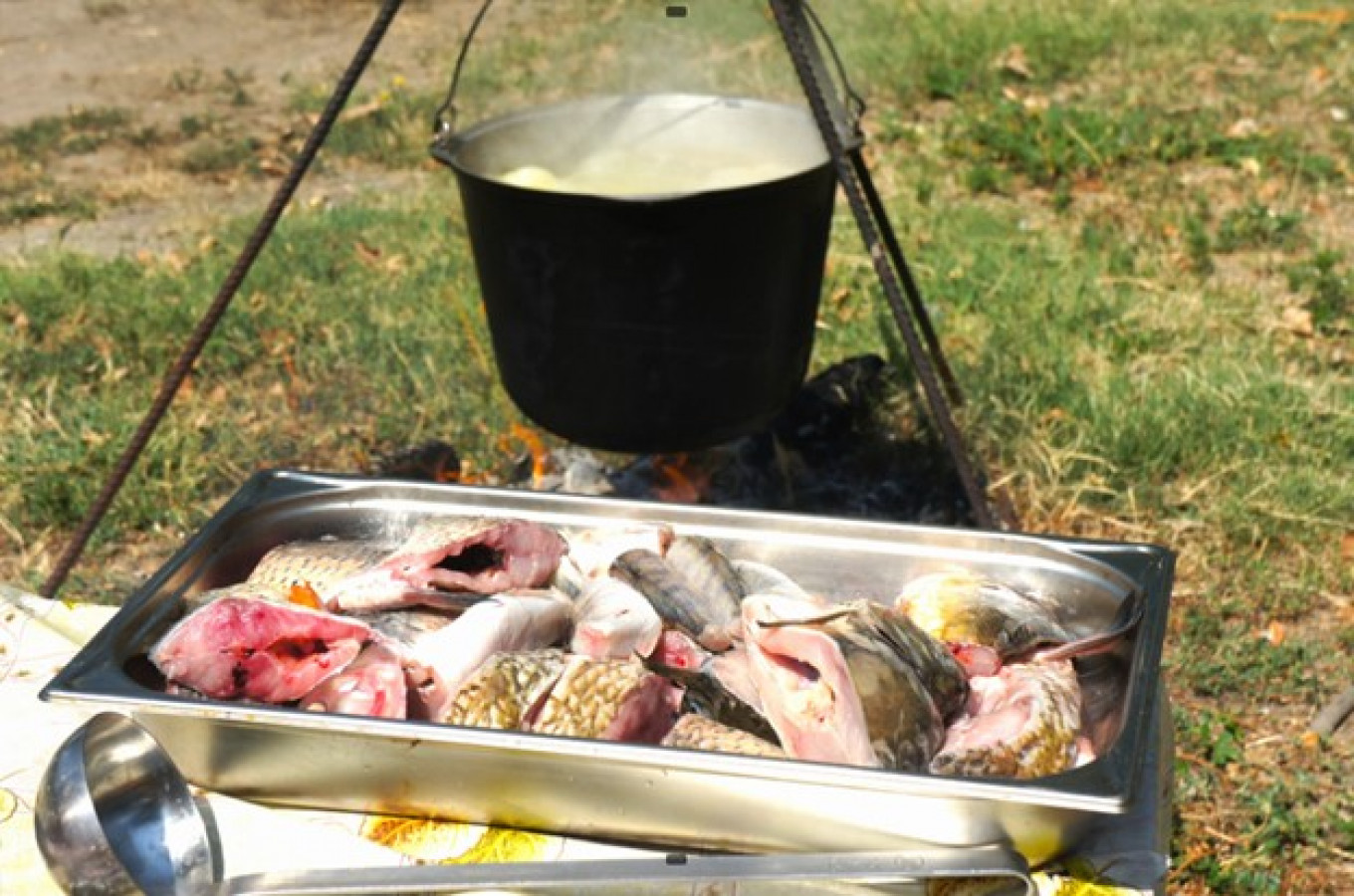
Not all of us can cook fish soup in the open air. Here are two recipes to cook at home:
Don River Ukha with Apples
Ingredients
- 5-2 kg (3.3-4.4 lb.) of a variety of fish: silver carp, bream, carp, catfish, pikeperch
- 5 liters (2.6 quarts) water
- 600-700 grams (1.3-1.5 lb.) potatoes
- 2 onions
- 3 medium tomatoes
- 2 sweet peppers
- 2-3 apples
- 1 hot pepper
- 3 bay leaves
- Herbs, salt and pepper
Preparation
- Clean the fish, wash and cut into small pieces.
- Peel the potatoes and cut them into large chunks.
- Peel and dice the onions.
- Remove seeds from peppers and cut them into julienne strips.
- Grate the tomatoes.
- Cut the apples into quarters and remove the seeds.
- Put the potatoes and onions in a pot with cold water. Bring to a boil and cook for 15 minutes. Then add the fish, bring to a boil, skim off the foam and simmer for 10 minutes.
- Add the tomatoes, bell pepper and hot pepper. Season with salt to taste. Cook for 5-7 minutes, then add the apples and bay leaf.
- Remove from the heat and stir in the herbs.
- Let the soup rest for 15 minutes. Remove the apples from the soup. Then with a slotted spoon, take out the fish and potatoes and put them on a plate. They are served separately.
Navaga Milk Ukha
Ingredients
- 600 grams (1.3 lb.) frozen cod or saffron cod
- 500 ml (1 pint) water
- 500 ml (1 pint) milk
- 100 g (3.5 oz) onions
- 100 g (3.5 oz) carrots
- 30 g (1 oz) clarified butter or butter
- Salt, pepper to taste
Preparation
- Cut carrots and onions into thin julienne strips and sauté in melted butter until slightly golden.
- Cut the fish into chunks — you can use fish that isn’t completely defrosted. (Since we are going to cook the fish in milk, we don’t need perfectly clear broth.)
- Pour water into a pot, add milk and bring to a boil. Put the cod and the braised vegetables into the pot.
- After it comes to a boil, simmer on low heat for 5 minutes. Season with salt and pepper to taste.
- Remove from the fire and let it rest for 15 minutes.
- For a real taste of the north, serve with rye kalitta (Karelian open pastries made from rye flour).
A Message from The Moscow Times:
Dear readers,
We are facing unprecedented challenges. Russia's Prosecutor General's Office has designated The Moscow Times as an "undesirable" organization, criminalizing our work and putting our staff at risk of prosecution. This follows our earlier unjust labeling as a "foreign agent."
These actions are direct attempts to silence independent journalism in Russia. The authorities claim our work "discredits the decisions of the Russian leadership." We see things differently: we strive to provide accurate, unbiased reporting on Russia.
We, the journalists of The Moscow Times, refuse to be silenced. But to continue our work, we need your help.
Your support, no matter how small, makes a world of difference. If you can, please support us monthly starting from just $2. It's quick to set up, and every contribution makes a significant impact.
By supporting The Moscow Times, you're defending open, independent journalism in the face of repression. Thank you for standing with us.
Remind me later.



